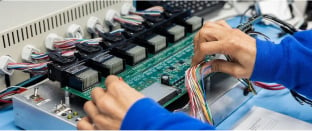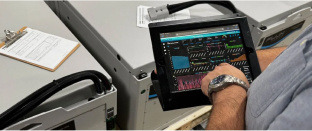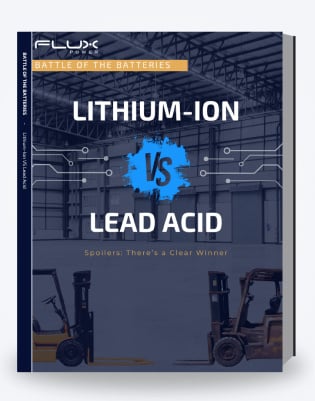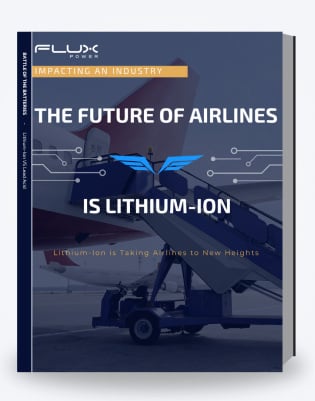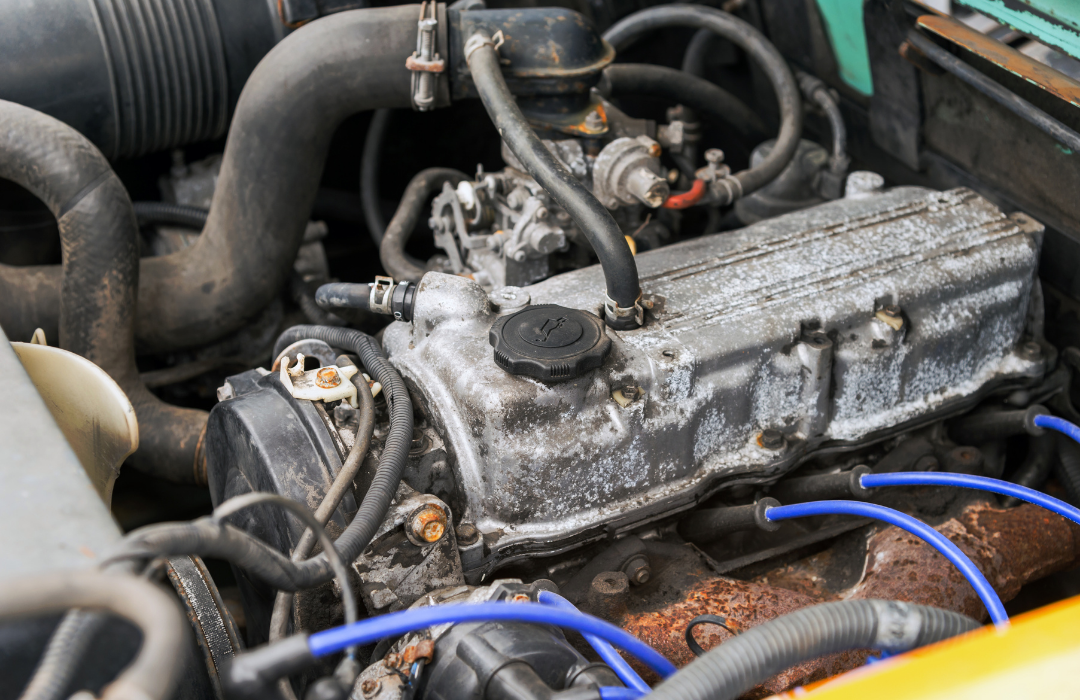Electrification of the Material Handling Industry
Electric forklifts have greatly increased in popularity over forklifts with internal combustion (IC) engines.
Advancements in technology have allowed electric / battery-powered forklifts to become much more affordable and accessible in the market.
Driven by online retailers scrambling to expand operations during the pandemic, the ratio of electric to internal combustion units sold year-to-date through August 2020 was 73:27, compared to 66:34 in 2019 and 64:36 in 2018.
This shift can be partially attributed to increased awareness of the environmental impact of burning fossil fuels, but that’s not the whole story. There are also solid business incentives for making the switch to electric forklifts, offering benefits for employee safety and comfort as well as for the bottom line of the company.
The Big Picture: Environmental Benefits of Electric Vehicles
The fleet electrification trend is not limited to just the material handling industry. Phasing out the use of fossil fuel-powered vehicles is seen as an essential step towards fighting climate change and is a priority across all industries and around the world.
Many governments are preparing for a full ban on the sale of IC vehicles as early as 2035, including the UK, France, Germany, and Canada. Even in the United States, many states like California have plans to ban gasoline-powered vehicles by 2035.
Warehouse and fleet managers are already in the planning stages - not only for upgrading their fleets to electric models, but for the organizational changes that come along with it. There is a lot to consider, especially when choosing what type of forklift battery to use.
As seen in other countries, the motivation to switch is not just environmental. There are tangible, financial advantages that help support this change. In this blog, we will go over the top three business reasons to make the switch from internal combustion to electric forklifts.
These 3 reasons to switch include:
- Improved warehouse safety
- Lower overall forklift maintenance and costs
- Maximized equipment uptime with opportunity charging
Business Reason #1: Improved Warehouse Safety
IC powered forklifts have two main disadvantages when it comes to worker safety: emissions and noise.
IC engines can emit carbon monoxide, a highly harmful gas that is odorless and colorless. Workplaces with IC forklifts should be either be fully outdoors or be very well-ventilated to prevent CO poisoning.
Lithium-ion batteries do not emit any harmful gases during charge or discharge and make for a much cleaner and safer work environment.
Noise exposure may not seem like a serious problem for workers, but it is more harmful than you may think - the CDC estimates that 22 million U.S. workers are exposed to hazardous noise at work, which can lead to permanent hearing loss.
OSHA requires employers to implement hearing conservation programs when noise exposure reaches a certain level, which includes a “Buy Quiet” initiative. Electric forklifts can help tremendously to mitigate this risk by eliminating that extra source of noise on the job.
Business Reason #2: Lower Overall Forklift Maintenance & Costs
The initial purchase price for an IC forklift is typically lower than a comparable electric forklift.
However, considering the total cost of ownership, electric forklifts almost always end up saving companies money in fuel and maintenance costs.
Tod Kilgore, Flux Power’s Director of Sales, states that, “fuel costs can run as much as $70 per day for a single lift truck.”
IC forklifts have a higher number of moving parts compared to electric forklifts. “With maintenance of the various valves, cooling systems, regular fluid checks,” Kilgore explains, “this adds to additional costs.”
This comes with increased risk of breakdowns, leaks and spills, and a general shorter lifespan than a battery-powered lift truck.
Lithium-ion forklift batteries are the easiest in terms of forklift maintenance - they don’t require periodic watering like lead acid batteries do and they can withstand a lot more variance in temperature.
Business Reason #3: Maximized Equipment Uptime with Opportunity Charging
One of the main advantages of using an IC powered forklift is the ability to fuel up and go at your convenience, maximizing uptime.
It is true that the traditional lead acid batteries do require a much longer charging period and a cooldown period as well. They also require a separate charging room and must be removed from the forklifts to be charged, adding a lot more labor and time to a worker’s day.
But improved lithium-ion technology for forklift batteries makes them just as capable of 24/7 operations as IC forklifts.
With opportunity charging, forklift batteries can be charged as needed during breaks or shift changes, and they can be charged in the forklift without removal.
Additionally, most manufacturers have electric models that can be used indoors and outdoors with loads of over 10,000 lbs.
Lithium-ion technology has the flexibility and versatility to meet the needs of warehouse managers looking to streamline operations with an energy-efficient solution.
Next Step: Choosing the Right Forklift Battery
For many organizations around the world, making the switch to electric forklifts is no longer optional.
For those who are still on the fence or starting to think about electrification process, it is important to educate yourself about all the electric forklift options out there, and choose the one that best fits your company’s operations.
There has never been a better time to go green and convert your fleet. Lithium-ion batteries are the best option for forklifts in terms of safety, efficiency, and productivity.

